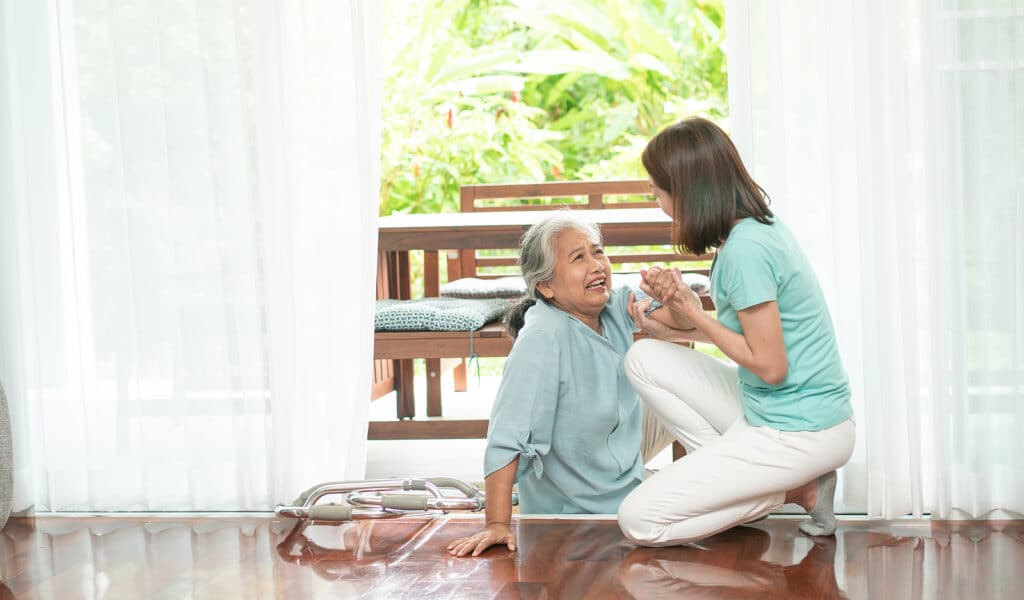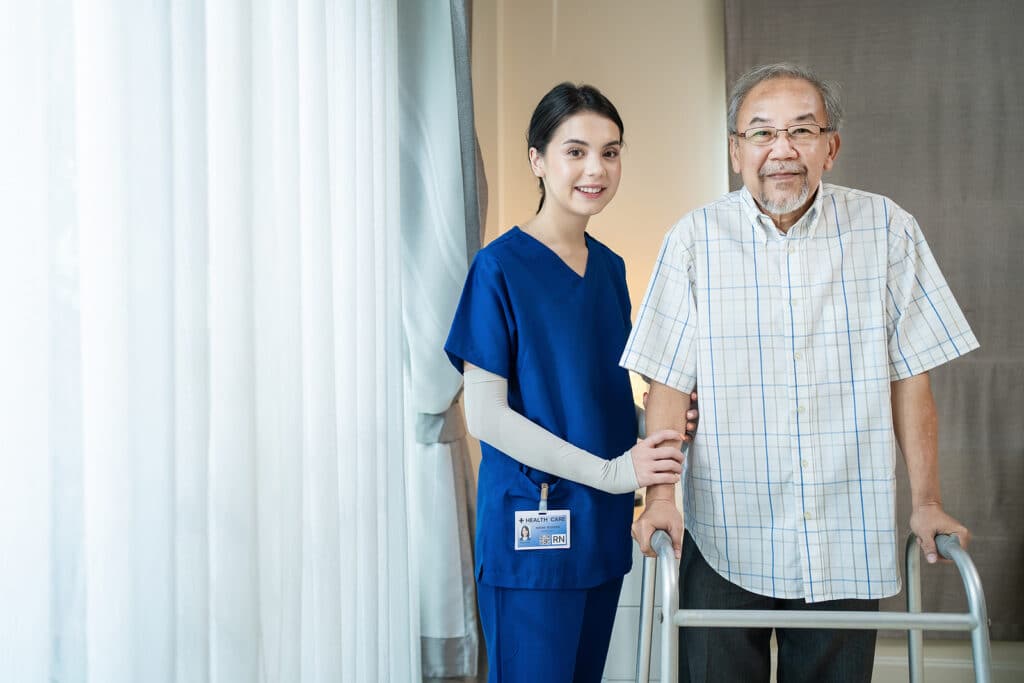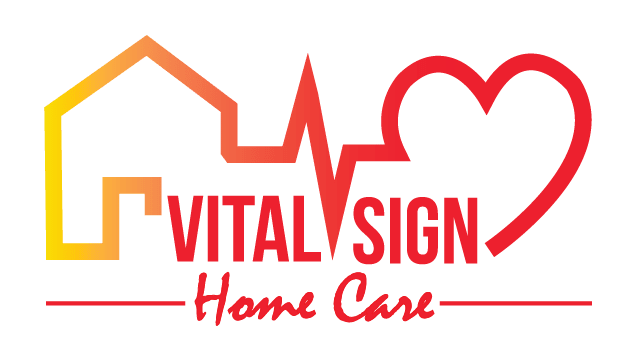Vital Sign Home Care in Maryland. Senior fall prevention at home.
How to Prevent Senior Falls in the Home
As a caregiver you might find yourself looking for ways to help your elderly family member to avoid falling. Some of the physical risks for falling are ones that you and your senior can manage, often with the help of her medical team and home care providers.
Poor Nutrition
You probably already realize that your elderly family member needs to get the best nutrition possible. If she isn’t, that affects her entire body. Cutting back too far on protein, for example, can cause her to lose muscle mass and have less energy than she needs. Eating foods that are high in empty calories leaves your senior at a deficit. Foods that are rich in nutrients give her body the fuel she needs to be able to move her body well.
Medications and Side Effects
Every medication has side effects, of course, and your senior may find herself taking multiple medications. Those side effects can start to add up and have a pretty big impact on your aging adult’s balance and her ability to avoid a fall. Talk with your elderly family member’s doctor about whether some of her medications need adjusting in order to reduce her fall risk.
Eyesight
Your elderly family member can’t avoid obstacles or problems that she can’t see. If she’s having trouble with her vision, an eye exam is the place to start. From there, you may find that corrective lenses help or there may be other solutions that are applicable. Many aging adults find that they’re dealing with some degree of low vision, in which case improved lighting can seriously help.
Loss of Muscle Tone
Vital Sign Home Care provides exceptional Fall Risk Management for seniors in Anne Arundel County, Baltimore City, Baltimore County, Carroll County, Harford County, Howard County Maryland.

Previous Falls
You have questions and we have answers, contact us today and one of our Vital Sign Home Care staff members will contact you shortly.
How Can Home Care Help Prevent Senior Falls in the Home?

Perform a Full Review of Your Senior’s Status
Assist with Activities of Daily Living
Activities of daily living are particularly important in terms of your elderly family member’s ability to avoid falls. These are activities that are part of a healthy life, like being able to change clothes, take a bath, and eat regularly. Other activities of daily living for your senior involve mobility and being able to safely navigate her home. Having help from home health care providers to take care of these tasks improves your senior’s quality of life immensely.
Bring in Different Therapies or Further Nursing Assistance
Triage Safety Concerns
The environment in which your senior lives is going to dictate how safe she may be from falling, too. Home health care providers are uniquely capable of quickly assessing and evaluating your aging family member’s home environment and determining what poses the biggest fall risks. They can help you and your senior to make that environment as safe as possible for her both now and in the future.
Home care providers are there for your senior to help her to be in the best health possible. Managing circumstances that could make a fall more likely is just part of how they achieve that goal.
How We Provide Home Care for Fall Risk Management
A Person-Centered Care Process
Each agency is unique in its own way. At Vital Sign Home Care, we understand how important it is to plan for care that is person-centered, or in other words, focused on the client’s needs first. As soon as we receive an inquiry about our services, we begin our assessment process. This process involves reviewing personal and medical information that is unique to your loved one’s needs.
This process begins with a:
1. Phone Interview
Our admission coordinator will schedule a time to conduct an initial phone interview to gather as much information about your loved one’s needs as well as the family’s needs. Once this information is gathered, we will then schedule an appointment to meet with one of our RN coordinators to begin the next step.
2. Care Plan Meeting
Our care plan meetings are designed to assess your loved one’s home environment and recommend and plan care based on the information provided. After the care plan meeting, a person-centered plan is developed with the family’s permission. No plan is implemented until the family approves the plan.
3. Caregiver Selection
Our RN coordinator along with our admissions coordinators work together to select caregivers based on the needs and interests of the client and family. This process can be tedious but through. We take into consideration various factors to select the proper caregiver for your loved one. Experience as well as personality is taken into consideration during the selection process with a home visit arranged before the final decision is made.
4. Care Monitoring
Caregivers are required to document (care notes) daily about the day-to-day activities as well as the care provided. Care notes remain on-site at the homes. Our RN monitors the caregivers by doing unscheduled visits.
We love hearing what others say about our medical and non-medical home care services. View our testimonials and find out why your family should use our services.
Our person-centered care process allows our RN coordinators to work closely with our admissions coordinators to select caregivers based on the needs and interests of the client and family. Get Started today!
